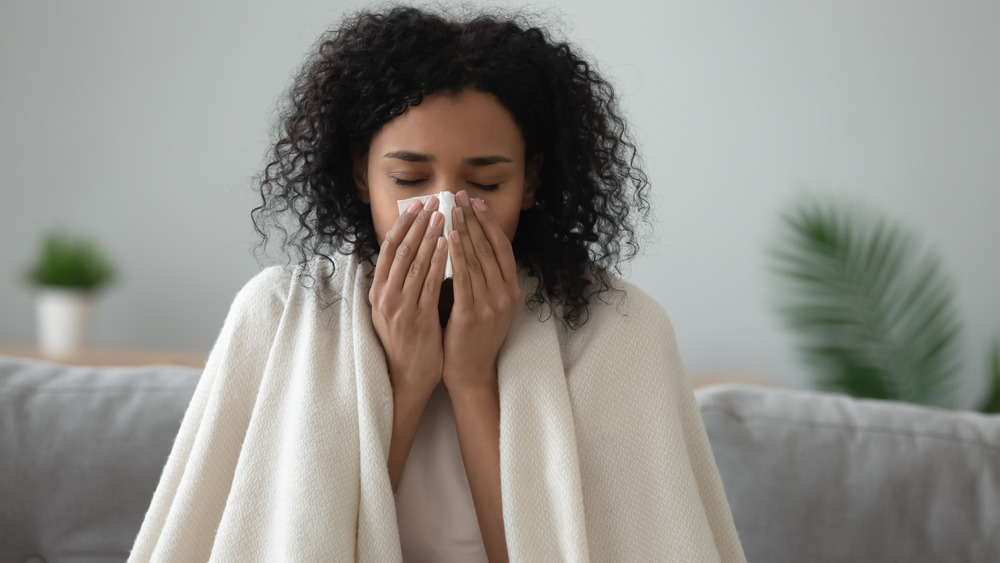Cold Vs. Sinus Infection: What's The Difference?
It's hard enough dealing with the discomfort and pain caused by illness. And it's even worse when you're not sure what kind of sickness you have. Is it the common cold — or is it a sinus infection, which might require a trip to the doctor for treatment?
It's important to know that there are two different types of sinusitis — viral and bacterial — but only the bacterial type is truly a sinus infection. The viral kind is caused by a cold virus that infects the linings of the sinus cavities, according to Harvard Health Publishing. Because it's caused by a virus, like a cold, it won't respond to antibiotics and you'll need to treat it with over-the-counter medicines to manage the symptoms.
A bacterial sinus infection is caused when bacteria invade the sinuses and infect the mucus membranes. This type of sinusitis will need a visit to the doctor and likely a prescription for antibiotics to clear it up.
But how do you know which one you're dealing with?
Colds and sinus infections share many of the same symptoms, including a runny nose, congestion, headache, sneezing, fever, and cough, according to WebMD. But there are a few things that can tip you off that you might be dealing with a sinus infection.
With a sinus infection, you're much more likely to feel pain or pressure in the sinus regions — between the eyes, in the cheeks, and behind the forehead. Your teeth may also hurt from this same pressure. The discharge from your nose will likely be green or yellow, and your sense of smell may not be as acute. With a bacterial infection, you may also have bad breath, according to the Cleveland Clinic.
The really telling factor, though, is time. Symptoms of a cold or viral sinusitis should begin to clear up in three to five days. With a bacterial sinus infection, your symptoms will likely last at least 10 days. You may also begin to feel better, then worsen again, which indicates that a cold has turned into a bacterial infection.
With both illnesses, you'll want to try over-the-counter medications at home to make yourself more comfortable. But if you begin to suspect a sinus infection, make an appointment to see your doctor as soon as possible for treatment.


